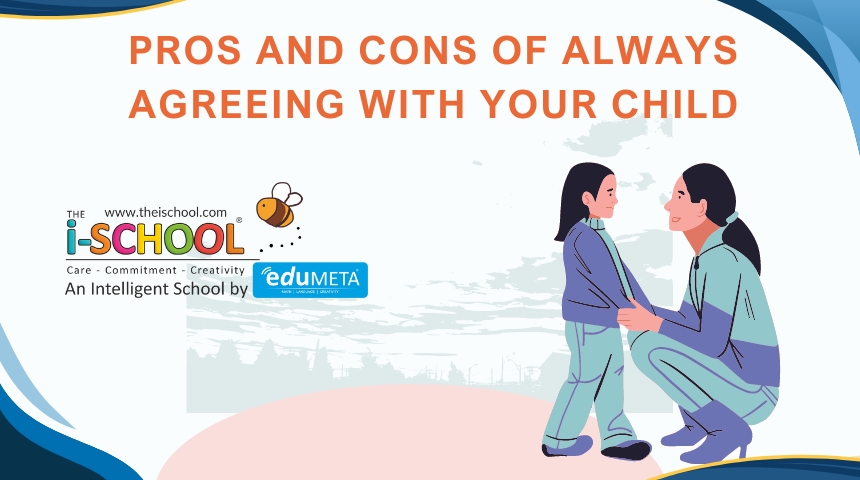Pros and Cons of Always Agreeing with Your Child

Parenting often involves a delicate balance between being supportive and setting boundaries. While it might seem beneficial to always agree with your child to maintain harmony and build trust, this approach has both positive and negative aspects. Understanding the pros and cons can help you make informed decisions about how to interact with your child.
Pros of Always Agreeing with Your Child
- Building Trust and Security
Positive Impact:
- Emotional Security: Consistently agreeing with your child can create a sense of security, as they feel understood and validated.
- Trust: It can strengthen the bond between parent and child, fostering a trusting relationship.
Example:
- When a child wants to talk about their feelings, agreeing with their perspective can make them feel heard and valued.
- Encouraging Self-Expression
Positive Impact:
- Open Communication: Agreeing with your child encourages them to express their thoughts and feelings openly.
- Confidence: It can boost their confidence, knowing their opinions are respected.
Example:
- Supporting your child’s choice in hobbies or interests, even if they are different from your own, can encourage them to explore and develop their passions.
- Promoting Positive Behavior
Positive Impact:
- Positive Reinforcement: Agreeing with your child when they make good decisions reinforces positive behavior.
- Motivation: It can motivate them to continue making good choices, knowing their actions are appreciated.
Example:
- Praising and agreeing with a child’s decision to share their toys with friends encourages kindness and generosity.
Cons of Always Agreeing with Your Child
- Lack of Boundaries and Discipline
Negative Impact:
- Spoiling: Always agreeing can lead to a lack of boundaries, causing the child to expect to always get their way.
- Discipline Issues: It may result in difficulty disciplining the child, as they might not understand the concept of limits.
Example:
- Consistently agreeing to late bedtimes can lead to poor sleep habits and a lack of understanding of routine and structure.
- Hindering Problem-Solving Skills
Negative Impact:
- Dependency: The child may become overly reliant on parental approval, hindering their ability to make independent decisions.
- Problem-Solving: They might struggle with problem-solving and conflict resolution, as they are not exposed to differing viewpoints.
Example:
- Always agreeing with your child’s requests to avoid conflicts can prevent them from learning how to handle disagreements constructively.
- Unrealistic Expectations
Negative Impact:
- Entitlement: The child may develop a sense of entitlement, expecting the world to always align with their desires.
- Disappointment: They might struggle with disappointment and frustration when faced with situations where their wishes are not met.
Example:
- Always agreeing to buy them what they want can lead to unrealistic expectations about financial decisions and material possessions.
- Limited Exposure to Real-World Scenarios
Negative Impact:
- Real-World Preparation: Constant agreement does not prepare the child for real-world scenarios where they must face rejection or differing opinions.
- Resilience: They may lack resilience and coping skills when confronted with challenges or conflicts.
Example:
- Consistently agreeing with your child’s perspective without challenging them can result in a lack of critical thinking and adaptability.
Finding a Balance
To strike a balance, it is essential to validate your child’s feelings while also teaching them about boundaries and differing perspectives. Here are some tips:
- Set Clear Boundaries: Establish and communicate clear rules and expectations.
- Offer Choices: Give your child choices within set boundaries to encourage independence.
- Encourage Critical Thinking: Engage in discussions that challenge their viewpoints and promote problem-solving.
- Provide Constructive Feedback: Offer feedback that validates their feelings but also introduces alternative perspectives.
Conclusion
While always agreeing with your child can have some immediate benefits in terms of trust and confidence, it is crucial to find a balance that also includes setting boundaries and encouraging independent thinking. By doing so, you can help your child develop the skills they need to navigate the complexities of the real world effectively.
